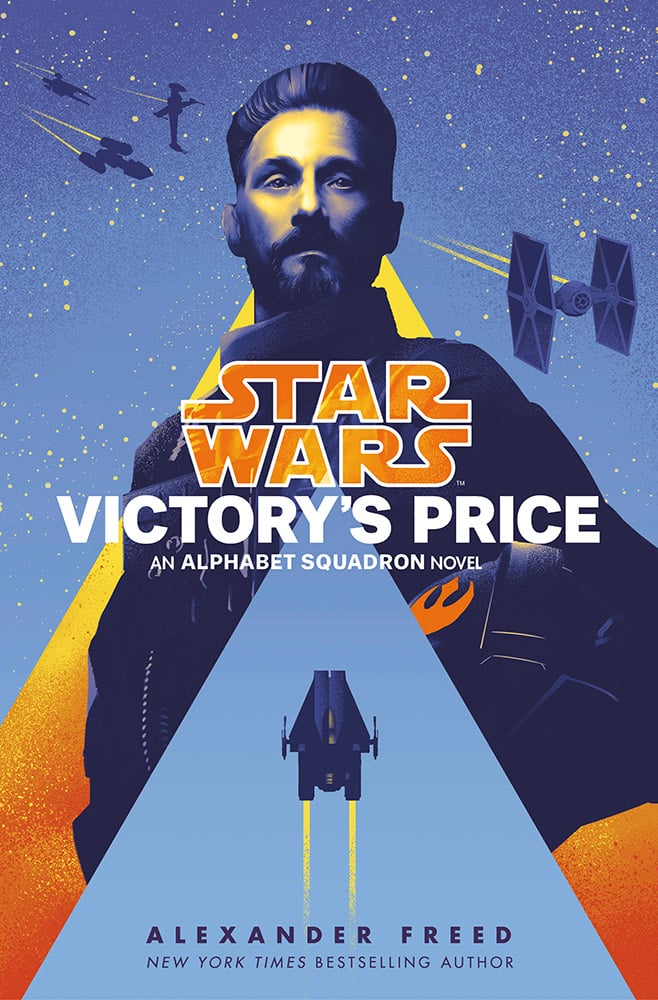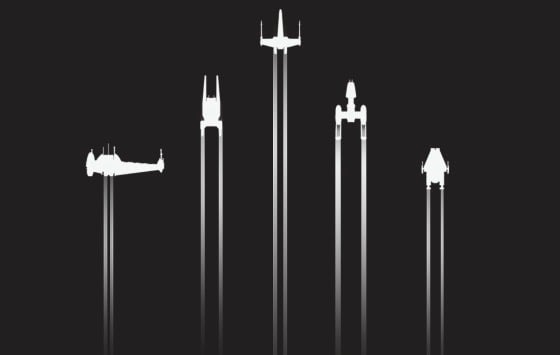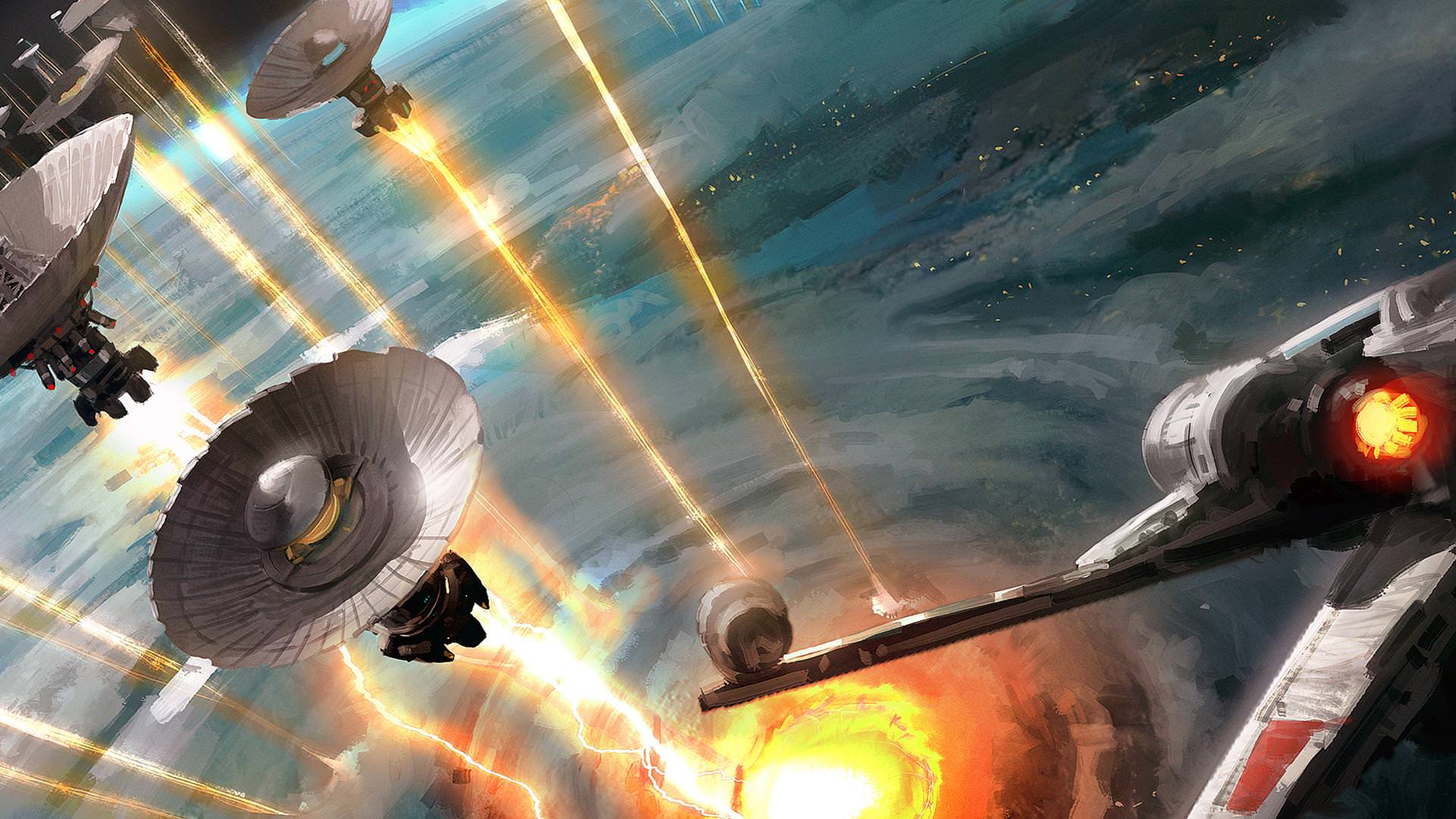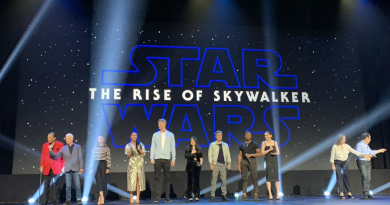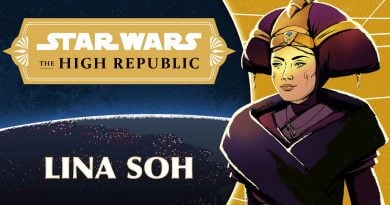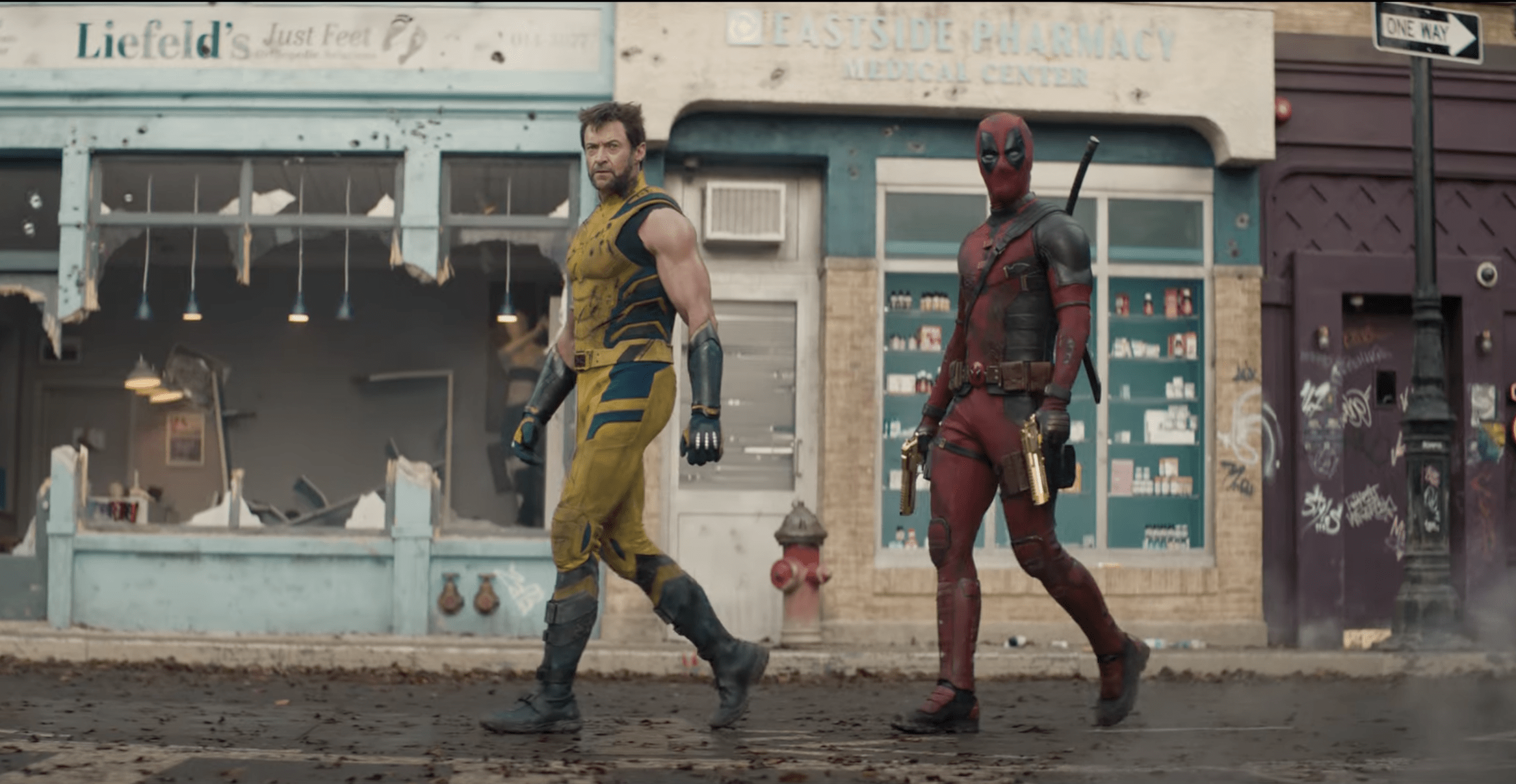Review – No One’s Ever Really Gone in Victory’s Price: An Alphabet Squadron Novel by Alexander Freed
Two years ago, author Alexander Freed introduced us to dueling squadrons, tearing one another apart during the last throes of a galactic civil war. Alphabet Squadron and Shadow Wing fight for contradicting causes – the former fight for the revival of democracy while the latter wish to maintain order under an authoritarianism they deem necessary. Both pursuits have cost incalculable lives of those who fight and those who are unavoidably caught in the crossfire. While Alphabet Squadron fights to put out every fire Shadow Wing starts in its final attempt to carry out the Emperor’s Operation Cinder, they’ve lost sight at what it cost each of them. Victory’s Price is as much a reckoning for both sides as it is a conclusion to their stories.
If there’s an obvious success to Victory’s Price it’s the work author Alexander Freed put towards continuing and concluding each character’s story. For now, I’ll avoid spoilers but be warned this review will not only touch on spoilers for Victory’s Price but also the previous books, Alphabet Squadron and Shadow Fall. Freed’s shift in the tone of this book is a dramatic and welcome one.
While I did enjoy the previous books, the characters and plots tended to get bogged down in technical jargon, a rapid procession of military officers, and a litany of planets (some very intriguing ones we barely glimpse). In Victory’s Price, the author hits his stride, balancing all the technical details and names with an impressive deep dive into who these characters are and where they’ve been. This is one of the most satisfying endings of any Star Wars story I’ve had the pleasure of reading and I applaud Freed’s devotion to character exploration in this final act.
For those readers who love battles and the technical details, don’t fear for there are plenty to keep you satisfied. Victory’s Price is very well balanced and often the character work happens within the action. In the previous novels, character development and plot advancement sometimes felt mutually exclusive but that’s not the case here. You can have your technical manual and your drama at the same time and it works so well.
If you want to avoid spoilers I’ll recommend you stop reading here. All you need to know is if you’ve come this far with these characters then consider Victory’s Price required reading. I’m willing to bet there is something every fan will love in this novel. Spoilers ahead. You’ve been warned.
While the passage of time between this story and Shadow Fall isn’t specified, it felt like we picked up right where we left off. Alphabet Squadron, led by General Hera Syndulla, are preparing for a last stand against Shadow Wing. Though many of the events are referenced in Victory’s Price, Freed assumes you are up to speed and doesn’t spend time recounting them in depth. The difference in cadence of Freed’s writing is noticeable from the first page forward. This story moves quick – like The Rise of Skywalker –first act quick.
The pacing of this story also adds to the tension the characters feel. Wyl Lark, Chass na Chadic, Nath Tensent, Kairos, and Hera are all tired of this war. Sure, they’ve been tired for both books, but the psychological grind of what they’ve seen and the dread of what else lays ahead loom over them. So as the story relentlessly unfolds, you can’t help but feel sympathy for how much it tosses these characters around. By the end of the first chapter, Alphabet Squadron discover the remnants of the Empire are tearing each other apart and Operation Cinder has resumed.
Like any dying monster, the Empire grows desperate and is willing to do anything to survive. Yrica Quell has a front row seat to this, back under the command of her mentor, Soran Keize. A lot of us reading Shadow Fall closed the book with our jaws dropped when Quell returned to the Empire, wondering how she could do it after everything she’s seen. Freed addresses this right away: Quell has returned to Shadow Wing with the intention of stopping Operation Cinder. She’s not doing it for Alphabet Squadron, the New Republic, Hera Syndulla, or any new allegiance she may have found. Simply, Quell doesn’t want anymore bloodshed and wants to do what she can to protect anymore worlds from the fate of Nacronis, where she participated in Operation Cinder. The guilt she still carries and the terror of what may still come drive everything Quell does. She’s determined to stop Shadow Wing from executing Operation Cinder because it’s the right thing to do and like her comrades in Alphabet Squadron, she sees the toll of war on the faces she’s surrounded by.
There’s a contradiction of hope and hopelessness in every character but it’s especially present in Yrica Quell. We discover she’s been sending anonymous messages to Alphabet Squadron (who believe she’s dead). Despite her intention for the death toll to end, Quell believes Hera and Alphabet Squadron are the only ones who can stop Soran Keize and his plans for Shadow Wing. The next stage of Operation Cinder is an especially unnerving one for Quell, as it involves Shadow Wing committing genocide against an Imperial planet they’ve deemed disloyal to the Emperor.
While sending a message to Alphabet Squadron in the bowels of an Imperial ship, Quell stumbles upon the Emperor’s Messenger (pictured above) and instinctively blasts it, believing it to be a member of the crew and she can’t risk being discovered. Fearing retribution from the staunch loyalists she’s serving with, Quell comes clean to Keize, who sees this as an opportunity to learn what the Emperor’s grand plan is for the future of the Empire.
Soran Keize finally comes into his own in Victory’s Price, which is to say he’s unleashed. Keize is a great villain and like all the best villains it’s because he believes he’s doing the right thing. Keize is the hero of the story he’s determined to write and the rest of the galaxy is just along to turn the pages. When presented the opportunity to look under the hood of Operation Cinder he’s anxious to take it. Their orders to continue Operation Cinder still stand, sending them to the Imperial controlled planet Chadawa. Chadawa is something of a sacred planet to the galaxy, built billions of years ago by an unknown alien species. There is an artificial tide of disruptive radiation that rises and falls in the planets rings, making it difficult to find a window for attack. Keize recognizes the important symbolism of bringing down the planet, even though it’s technically an Imperial planet inhabited by Imperials. It will send a message across the galaxy. For all his moral equivalencies, Keize doesn’t hesitate to go from charismatic leader to cold blooded murder. And he’s determined to defeat Hera Syndulla.
General Syndulla is in command of the former Star Destroyer, Deliverance. It houses several other New Republic squadrons (Squadrons fans, look sharp for some shoutouts) but she sees Alphabet Squadron as the spearhead for any attack against Shadow Wing. Rebels fans will understand why she feels so uneasy walking the corridors, let alone commanding a Star Destroyer. Hera is tired as well and laments the life she’s leading. For the first time, we hear her think about life outside the Rebel Alliance and New Republic, her thoughts turning to her son and a family she hasn’t seen in a long time. I’m going to keep a lot of Hera surprises close to the chest but she’s got a great presence in this story and you’ll be clapping your hands by the end. Hera doesn’t hesitate and after Keize launches a deadly sabotage droid attack against the Deliverance, she heads to Chadawa to engage Shadow Wing, hoping it will be the final battle.
If combat fatigue is the theme of Victory’s Price then there’s a good reason Wyl Lark is on the cover. The new commander of Alphabet Squadron is feeling the weight of his duties and enormity of the war every second. Wyl is trying to be a good commander but he sees these pilots are on the verge of breaking and realizes he’s in the midst of a moral dilemma himself. When Wyl discovers he’s the last of those who left his planet to fight, the price of victory becomes more apparent. Wyl considers how many other people, both in the New Republic and the Empire, have been extinguished. He’s trying to connect with Chass, Nath, and Kairos but the pilots are all fractured emotionally and find a subconscious solace in the fight. Wyl sees this and knows he needs to break the cycle somehow.
Chass is in an interesting headspace when we meet her. She’s been inundated with religious teachings and continues to hear them circling in her head. The Children of the Empty Sun occupy a large part of her attention, as she’s switched from the aggressive music blasting in her B-wing to their lectures. Eventually, we find out their leader is a charlatan but I found it interesting this spiritual journey helped Chass find solid ground. Her co-pilots aren’t so keen to her new spiritualism but ultimately it doesn’t matter. It gives Chass a respite so she can find her own truth, her own inner spirituality, and focus on a living in the galaxy rather than plunging into each new battle as if it’s her last. Though, when they arrive at Chadawa and she discovers Quell is alive and flying with Shadow Wing again, serenity is out the window. She turns on the comm frequency, shouting “Traitor!” at Quell and essentially blowing her cover. Keize and the rest of Shadow Wing didn’t know Quell flew with the New Republic and lucky for her, she’s just departed Shadow Wing to go looking for answers about the Emperor’s Messenger. Chass is so shaken by Quell’s seeming betrayal she chases after her through hyperspace. And she’s not alone in her pursuit of Quell.
Kairos, forced to shed her armor in Shadow Fall from devastating injuries, is after Quell for her crimes on Nacronis. If I had to pick one character’s arc in this book as my favorite, it’s Kairos. We learn how important her armor was, as the story moves to her home world later in the book, and how her forced transformation has made her an outcast among her people. It’s both bittersweet and hopeful, as Kairos finds herself and realizes who she will be transcends the expectations of her world, the New Republic, or Alphabet Squadron. Kairos is the toughest member of Alphabet Squadron but so many times seems like the most fragile. Not because she exudes weakness but the trauma she’s endured seems so much worse as you learn more of her story. I won’t be spoiling it here in this review because Alexander Freed wrote it beautifully and it deserves to be experienced in that context, not my words. The transformation Kairos experiences is symbolic of each character and the whole of Alphabet Squadron.
No, I didn’t forget about Nath Tensent but I will say his story is dwarfed by everyone else. That’s not a bad thing or a criticism of the character and writing. Nath is great but his function in all of this seems to be an amoral guide for these characters as they go down a figurative morality maze. It’s one Nath has been watching them go through over the last two books. Nath knows who he is and that at this point in his life, he’s not going to change. There’s comfort in that for him and it also allows him to bear the burdens some of these characters are no longer capable of. Nath has the natural ability to lead but he’s not ambitious, he’ll do what needs to be done. Whether that’s hopping in a Y-wing and blowing things up or holding a mirror to another member of Alphabet Squadron, Nath isn’t afraid to go to the uncomfortable or terrifying places. I don’t doubt Freed’s love for all these characters but you can tell Nath is his way of expressing tough love for everyone in the story.
The Empire also feels like a character in this story, if that makes any sense. When Quell reaches a droid-controlled planet, she’s able to have the remains of the Emperor’s Messenger examined and it’s programming decrypted. What she discovers unnerves her and when she passes it along to Keize, it changes everything for him. Through so many stories, we’ve been exposed to the indoctrination of the Empire. We learn while the Empire broke their cadets and officers to Palpatine’s terrible will, each step was documented. After the Battle of Endor, the contingency came online and this documentation essentially became weaponized, creating an algorithm to find officers capable of carrying out the atrocities of Operation Cinder. Basically, if you find out the Emperor’s Messenger chose you to be a part of Operation Cinder, it means you are the most loyal to the Empire but also willing to be complicit with the most terrible designs. You’re the best of the Empire but you’re also the worst.
Keize sees this as a way for the New Republic to brand all ex-Imperials for life, no matter how small their crimes or roles. The power of the Empire’s hold on those who’ve served is demonstrated by Freed when the planet Chadawa turns against the New Republic, even though they are trying to stop Shadow Wing from committing genocide against its people. Hera tries to reason with them but they simply can’t see beyond the Empire and she’s forced to destroy their ships. Luckily, Shadow Wing is ordered to abandon Operation Cinder at this point and called to Jakku for the Empire’s last stand, so Chadawa is spared though Shadow Wing still managed to kill millions. This kind of Imperial hold tells Keize there can be no peace and he decides to set out and destroy the massive database, buried on Coruscant.
Chass and Kairos eventually catch up with Quell, just as the Imperial officers she set out with discover she lied about being captured by the New Republic and actually flew with Alphabet Squadron. Inadvertently, Chass and Kairos save her life by dispatching them and seeking refuge on Kairos’ home world, looking for spare parts at a long abandoned Imperial outpost. This is where we learn about Kairos but it also gives Chass and Quell a chance to turn down the temperature and listen to each other. Quell has the receipts, as she’s been feeding Shadow Wing’s location to Alphabet Squadron all along. This helps both of them calm down but they don’t forget who she is and what they learned about her role at Nacronis in Shadow Fall. Eventually, they find their way back to the New Republic as General Syndulla prepares to join the Battle of Jakku.
Again, I really want to talk about Kairos’ story in this chapter but I promise I won’t do it justice. Her transformative journey is such a high point of Victory’s Price and a metaphorical distillation of what every character has undergone in this trilogy. Kairos doesn’t want to be Kairos anymore. Neither does Quell, or Chass, and Wyl is rejecting the armor he wore as commander of Alphabet Squadron. At one point during the stalemate over Chadawa, Wyl opens frequencies and starts conversations with pilots in Shadow Wing, eventually leading him to resign his command and refuse to fight. They all decide to reject what this war made them and find their own truths.
I don’t mean to be lazy…but we all know what happens at the Battle of Jakku. There have been countless retellings over the various mediums in canon and you can tell Freed is well aware of that. He focuses on his own little corner of the massive confrontation. Wyl has given up his command so Nath and Chass fly for Alphabet Squadron, along with everyone else. Quell was able to brief General Syndulla on the database Keize is after and Hera sends her and Kairos to Coruscant to go after Keize.
The final act of Victory’s Price is excellent. A chase above and through the interior of Coruscant, Quell versus Keize. It’s spectacular writing, where Freed excels at technical writing and detailing maneuvers he also balances the emotional volatility both Quell and Keize feel. At this point, Keize seems to have lost the point of what he’s fighting for and Quell brings that ugly truth to life. They’ve all been soldiers, brutalized by the Empire to do its bidding and she wants to help him forget. They come face-to-face in the climax and Quell is able to retrieve the database. She reminds Keize they need to carry what they’ve done and it shouldn’t be erased. The sins of the past define them and erasure will only make it possible for something more awful to spring forth in the end. In his dying breath, Keize broadcasts a transmission, accepting responsibility for Operation Cinder and declaring he misled everyone under his command, hoping the New Republic will listen and be lenient. In the end, Keize dies with hope in Quell and those who will grow beyond him and be better.
In the epilogue of Victory’s Price, we learn each member of Alphabet Squadron finds their peace. There are no Ewoks dancing or princess’ handing out medals over ceremony. Victory for these characters is learning how to stop surviving and start living. That’s not always a glorious triumph with twin suns as the backdrop. It’s real and it is so satisfying. Nath goes back to being Nath, which is the best way I can say it. Wyl finds a new way to be a leader and fight for others, as a senator in the New Republic. Kairos…well, we don’t really know but she’s out there somewhere. And Chass and Quell have made a home together. Chass found something to believe in…love. And Quell, she found exhilaration in joy.
Victory’s Price is not only one of the most satisfying conclusions I’ve read, it’s an amazing story. Alexander Freed’s writing is masterful. I’ve left so many things out simply because this review would be a novel of it’s own if I tried to include them. This is a story of hope but it’s also a story of truth. These characters go looking for their truth and find it. By the end, it’s up to them to find out how to live with it. Love and life are things we are often told we have to fight for but that’s not always true. Alexander Freed had them fighting for three books and they finally learned sometimes you have to surrender to win.
RATING: 8/10
Victory’s Price: An Alphabet Squadron Novel is available wherever books are sold. Special thanks to Del Rey for the advanced copy used for this review.
Kyle Larson lives in Portland, Oregon. When he's not running trails, he's reading and writing.

